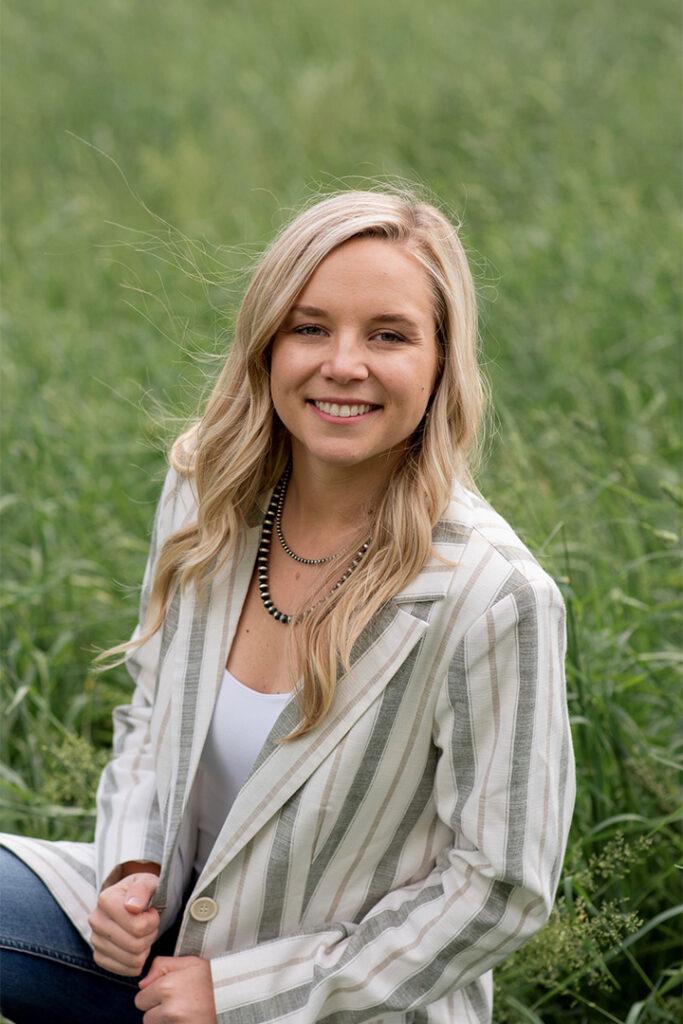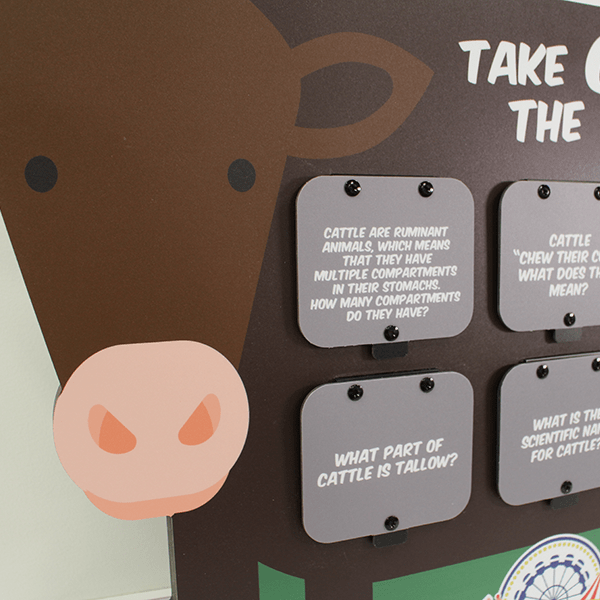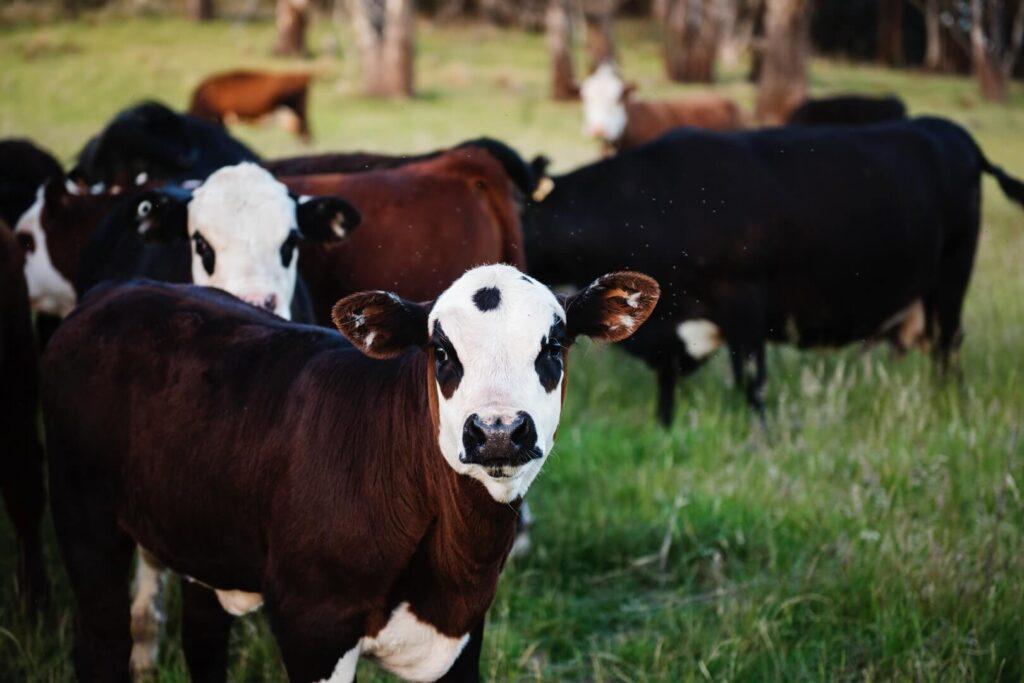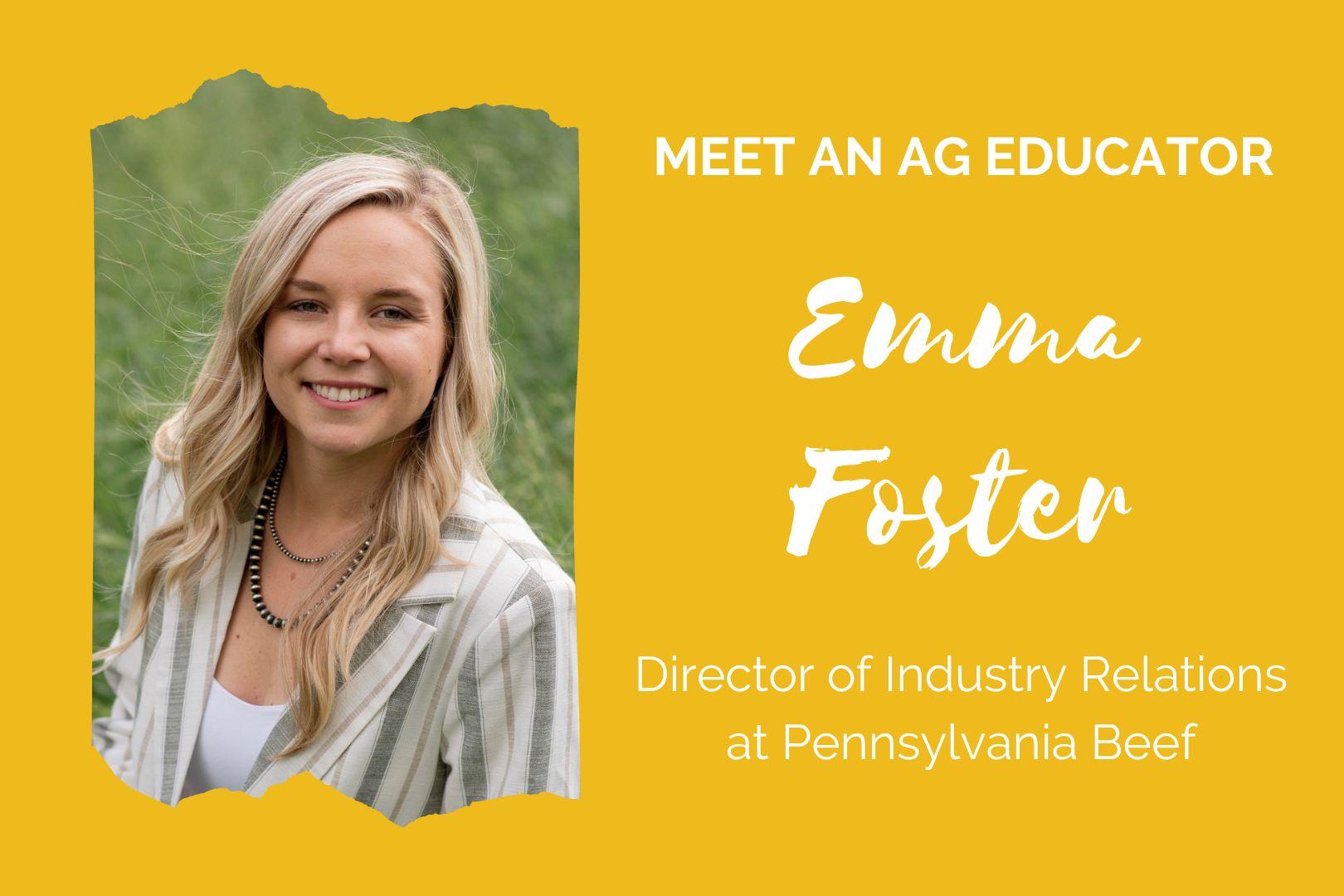
You may remember that we talked with an ag educator at a beef checkoff a few months ago. But while Ali Cantrell’s job focused on consumer education, Emma Foster’s job is a mix of consumer-focused and producer-focused education.
As the Director of Industry Relations, Emma helps producers learn the best practices to produce the best possible beef. Then, she also helps consumers discover the potential of beef. Read on to hear about the specifics, and the part of the job she enjoys most!
Exhibit Farm: Could you explain Pennsylvania Beef’s setup and what you do there?
Emma Foster: Sure, so for every head of cattle that’s sold, 50¢ stays within the state of Pennsylvania and comes to us, and then 50¢ goes out to the national-level checkoff. With that, we go around and do education on behalf of the farmer, to build beef demand within our state.
Day to day, I can either be on the road traveling to events or going to farm tours, or I can be sitting behind my computer and working on projects to come in the future. [I also] do newsletters and get everything prepared.
Exhibit Farm: I saw several interesting programs on PA Beef’s website. Could you tell me more about Beef University?
Emma Foster: So the Beef University is actually funded by the National Cattleman’s Beef Association. That’s to get more education on beef and become certified to be an educator and talk to consumers on behalf of beef.

Exhibit Farm: Ok, and what about Team Beef, the athlete partnership? How does that work?
Emma Foster: So that is funded partially by our part-time dietician. She [works] with us and she’s also with the Northeast Beef Promotional Initiative. She has a group of individuals that promote beef by going to different runs and using beef as part of their protein sources to make sure they’re fully fueled for the run. The next race we have coming up is in Falmouth; it’s in the middle of August.
Exhibit Farm: You work specifically with industry relations. What does that involve?
Emma Foster: I’m the only Beef Quality Assurance (BQA) coordinator for our state. I go around and do about ten of those trainings about per year. They’re voluntary trainings for producers to learn about how they can have a wholesome product and reduce blemishes and lesions within that product. [Things like] making sure we’re giving injections within the neck and subcutaneously. Before the ’80s, basically, they used to give injections in the rump and it would really mess up a high-end product (and [that’s] why BQA was invented).
Exhibit Farm: What do you try to tell consumers about beef and the beef industry?
Emma Foster: We work with consumers to tell them the advantages of beef. Within our state, we have a more negative or neutral perception towards beef, rather than the national average. So we’re trying to show them the advantages of beef, how beef can be healthy using the lean cuts of beef. We promote easy recipes because a lot of people are now eating at home post-COVID. And then we’re also trying to make beef easily accessible, because people are ordering online and getting their groceries online.
Exhibit Farm: So like helping producers set up online stores?
Emma Foster: No, we go through grocery stores and retail outlets. We’ll do promotions to make sure that consumers are buying beef with whatever product. We just worked with Giant in June and put out a recipe with a healthy burger option, to just get out the message that beef is healthy.

Exhibit Farm: How did you personally get involved in the beef industry?
Emma Foster: I grew up on a beef farm in southern York County, Pennsylvania, so I’ve kind of always been in this industry. And as I grew up, I knew I wanted to go get my degree in Animal Science, but I wasn’t exactly sure what to do with that. I knew I didn’t want to be a vet.
So it kind of just happened to fall in my lap. I worked with the Pennsylvania Beef Council during their Millennial-to-Millennial program that they had for college students when I was in college. And now going back, I still know some of the staff that was there then and is still here now.
Exhibit Farm: And what do you like most about being part of ag education?
Emma Foster: I think the biggest thing is being able to educate consumers about myths of beef and making a positive impact on consumers. And just having good conversations with them as well as with producers, to just make sure everybody has the information they need.

